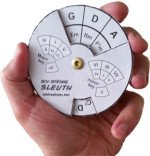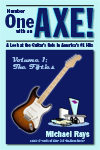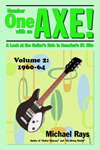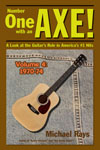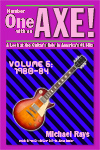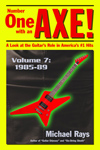Book Review: “Guitar Rigs” by Dave Hunter
 “Guitar Rigs: Classic Guitar & Amp Combinations” by Dave Hunter is an amazingly in-depth look at guitar/amp rigs that have produced some of the most recognizable and classic electric guitar tones in popular music.
“Guitar Rigs: Classic Guitar & Amp Combinations” by Dave Hunter is an amazingly in-depth look at guitar/amp rigs that have produced some of the most recognizable and classic electric guitar tones in popular music.
The Big Take-Away: it is sheer folly trying to recreate the exact tones of your guitar heroes. Why? Because there are SO many factors involved!
How many factors affecting tone can you name? Write them down, and then read Chapter 1: “Tone Primer: The Sound Chain.” Unless you are an experienced guitar tech, I’m guessing you missed quite a few–I know it was an eye-opener for me! This chapter is a terrific reference, and a good refresher to read now and then.
A full book describing ohm-ratings of pickups and tube names (such as KT66 and 6L6) in amps would be dry indeed, but here is where Hunter had his moment of inspiration: he dives into the technical nitty-gritty, but he does so on specific guitar/amp combos that we all know and love. This was huge for me: I am not a tech guy, and I was much more willing to read about these details when I knew they ultimately led to Dick Dale’s “surf tone” or Jimi Hendrix’s sound on “The Wind Cries Mary.”
Another tremendous feature: there is an accompanying CD which has 54 short tracks, each one utilizing one of the classic rig setups mentioned in the book. I found the CD extremely useful in hearing the tonal differences Hunter describes in the text. In this case, a track is worth a thousand words!
This book will be most valuable to guitar techs, vintage collectors (there are several passages on why some guitars and amps have certain highly sought-after production years) and guitar historians. The more you know about gear, the more you will appreciate this fine book. If you are a novice like me, a lot of the book will be over your head–but if you have any inkling that you want to become knowledgeable about the inner workings of guitars and amps, my advice is to get “Guitar Rigs” and dive right in!
PS Here’s a good intro to how amps work (tube amps anyway) for those who need a primer:

